Introduction
In 2024, a total of 587 cargo robbery incidents were recorded, representing a 17.9% decrease compared to 2023, when 715 cases were registered. Regarding monthly distribution, July recorded the highest number of incidents in 2024, with 65 reports, while December registered the lowest, with 36 robberies.
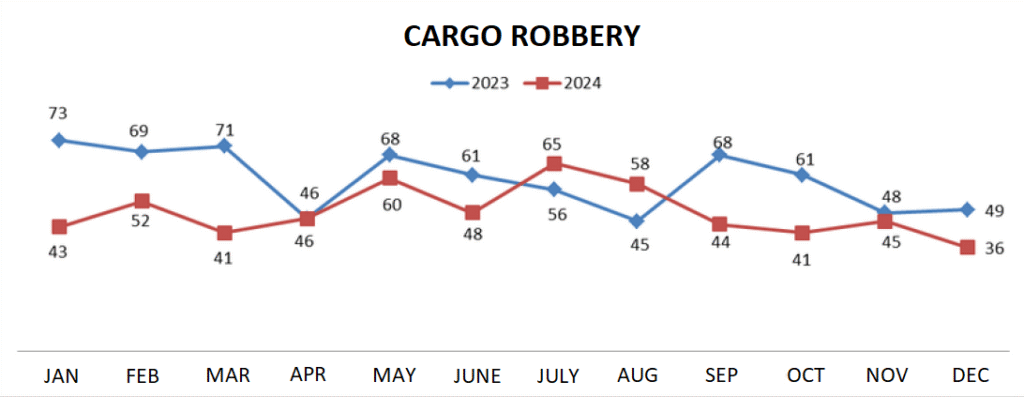
The average number of cargo robberies in 2024 was:
- 48.9 incidents per month (compared to 59.6 in 2023).
- 1.6 incidents per day (compared to 1.95 in 2023).
This Content Is Only For Subscribers
To unlock this content, subscribe to INTERLIRA Reports.
Highways
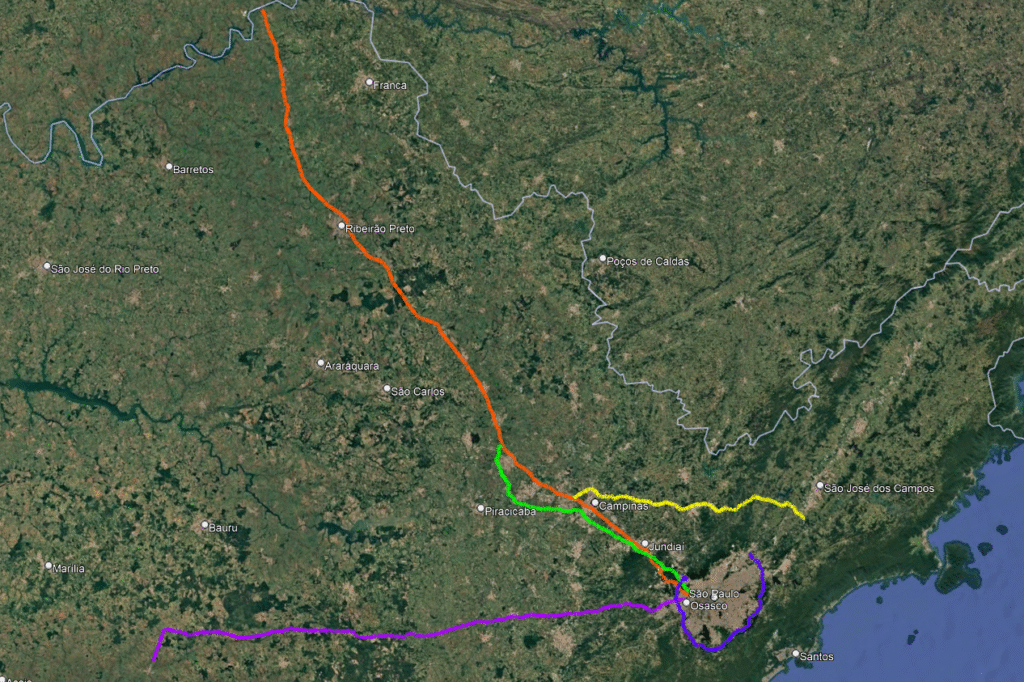
Despite the overall decline in cargo robberies, SP-021 (Mário Covas Beltway) and SP-280 (Castelo Branco Highway) recorded increases, with the former showing a 15% rise. In contrast, the Anhanguera/Bandeirantes Highway, responsible for 64% of cases among the main highways, showed a reduction in 2024, as did SP-065 (Dom Pedro I Highway), which registered a 34% drop.
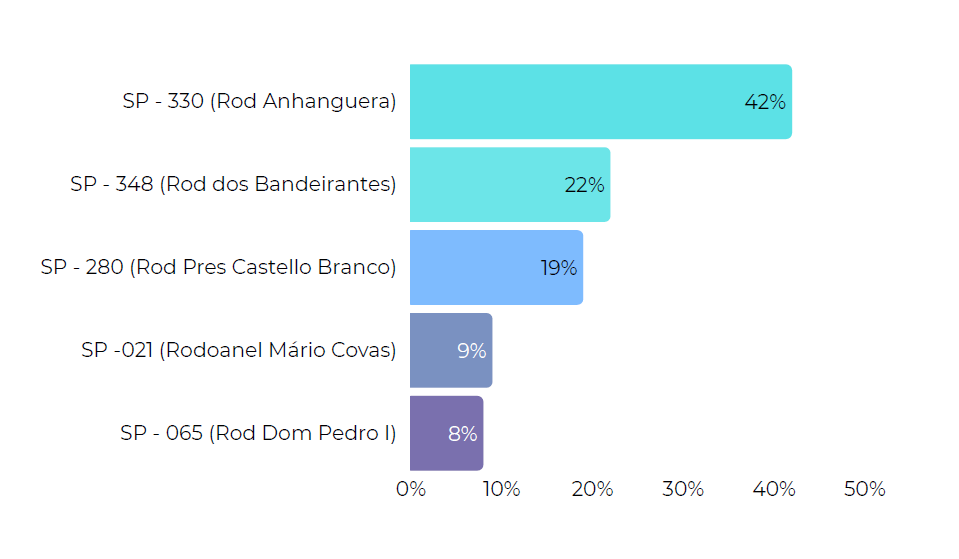
Times
In 2024, nighttime (evening and early morning) accounted for 362 cargo robberies, maintaining the trend observed in 2023. There was a significant 42% decrease in afternoon incidents and a greater concentration of crimes at night, unlike 2023, when risks were more evenly distributed throughout the day. All time periods analyzed recorded a decline in cases.

Cities
The city with the highest number of robberies in 2024 was São Paulo, with 35 reported incidents. However, this represents a -22% reduction compared to 2023. Below is a comparison of the top five cities in terms of cargo robberies in 2024/2023.
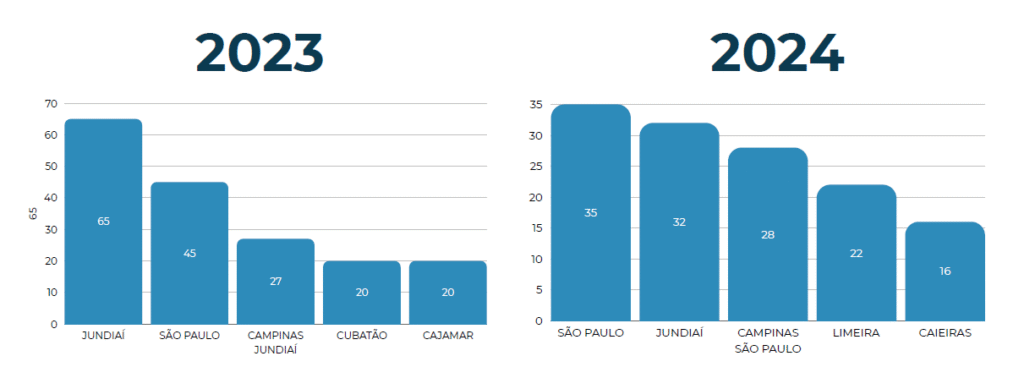
When analyzing the top five cities with the highest number of incidents, the rankings changed between 2023 and 2024. Cubatão and Cajamar dropped from the list, while Limeira and Caieiras joined, despite the overall reduction in cases in 2024. On a positive note, Jundiaí recorded a significant -51% decrease in cargo robberies during the analyzed period.
2025 (through April)
An analysis of cargo robbery data in the State of São Paulo between January and April 2025 shows a significant decrease in occurrences, with a 22.04% drop compared to the same period in 2024 (from 1,674 to 1,305 cases). This decline was observed both in the capital (-23.34%) and in the interior (-36.16%), with Campinas standing out with a 52.94% reduction and Santos with -30%.

The integrated action of security forces, combined with the use of technology and intelligence strategies, likely contributed to this decline, especially in historically critical areas. The downward trend also persisted between April 2024 and 2025, with a 20.29% reduction in monthly records.
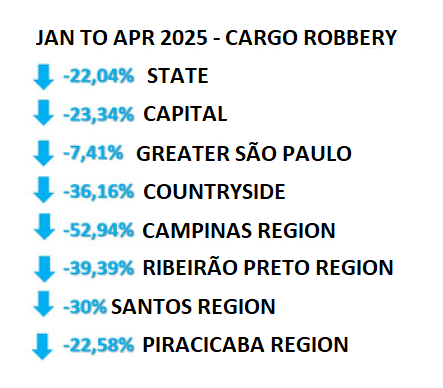
Between January and April 2025, cargo robberies fell 22.04% in the state, with emphasis on Campinas (-52.94%) and the interior (-36.16%). Only São José do Rio Preto recorded an increase, with 2 additional cases. The first four months of 2025 registered the lowest number of cargo robberies in history (971 cases), a 72.6% decrease compared to the 2017 peak. This data confirms the effectiveness of public safety policies and police strategies in the state.
Conclusion
Despite the 17.9% reduction in cargo robberies in 2024, it remains essential to maintain close attention to highways that serve as the main logistical corridors in industrial and commercial regions. In this context, the Anhanguera-Bandeirantes, Anchieta-Imigrantes, and Rodoanel Mário Covas (SP-021) highways are particularly significant.
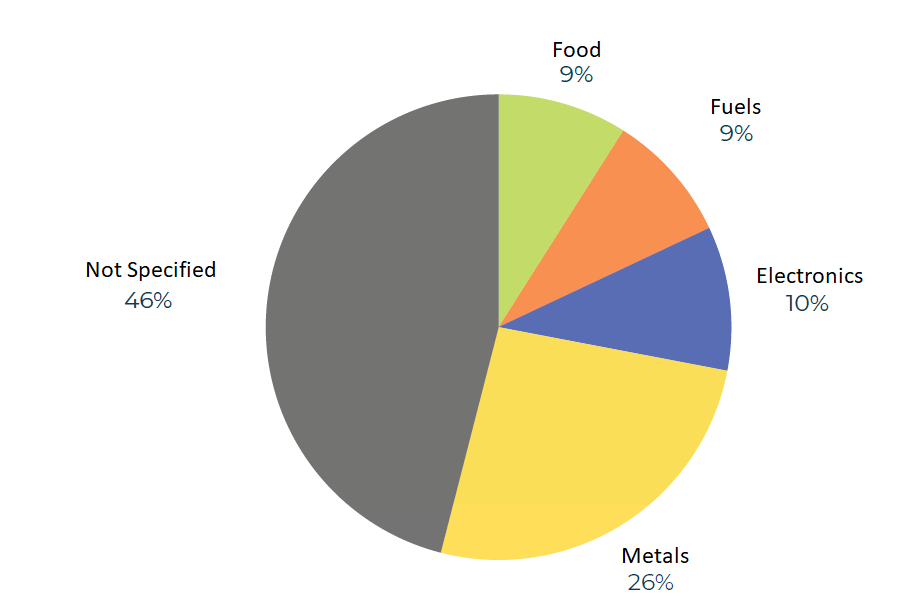
The constant presence of the Highway Patrol is crucial to deterring criminal activity on these strategic routes, ensuring that offenders do not feel encouraged to act. A closer analysis shows that incidents are more dispersed in stretches of municipalities near the capital, such as Caieiras and Jundiaí. These events are concentrated mainly on SP-348 (Bandeirantes Highway), SP-330 (Anhanguera Highway), SP-280 (Castelo Branco Highway), and SP-021 (Mário Covas Beltway)—the latter being the main logistics hub connecting the state’s interior, the São Paulo coast, and the southern region of the country.
Recommendations
- Exercise special caution when operating on Highway SP-021 (Mário Covas Beltway), given its importance and history of incidents.
- Plan routes in advance, considering road conditions and critical points, and prioritize stretches with better infrastructure and safety.
- Ensure the careful selection and qualification of drivers and other personnel involved in the operation, as a key risk mitigation measure.
- Implement additional security measures, such as checkpoints, electronic seals, armed escorts, and/or monitoring by route analysts.
- Avoid operations at night and in the early morning hours (between 6:00 PM and 6:00 AM), due to the higher concentration of incidents during this period.




